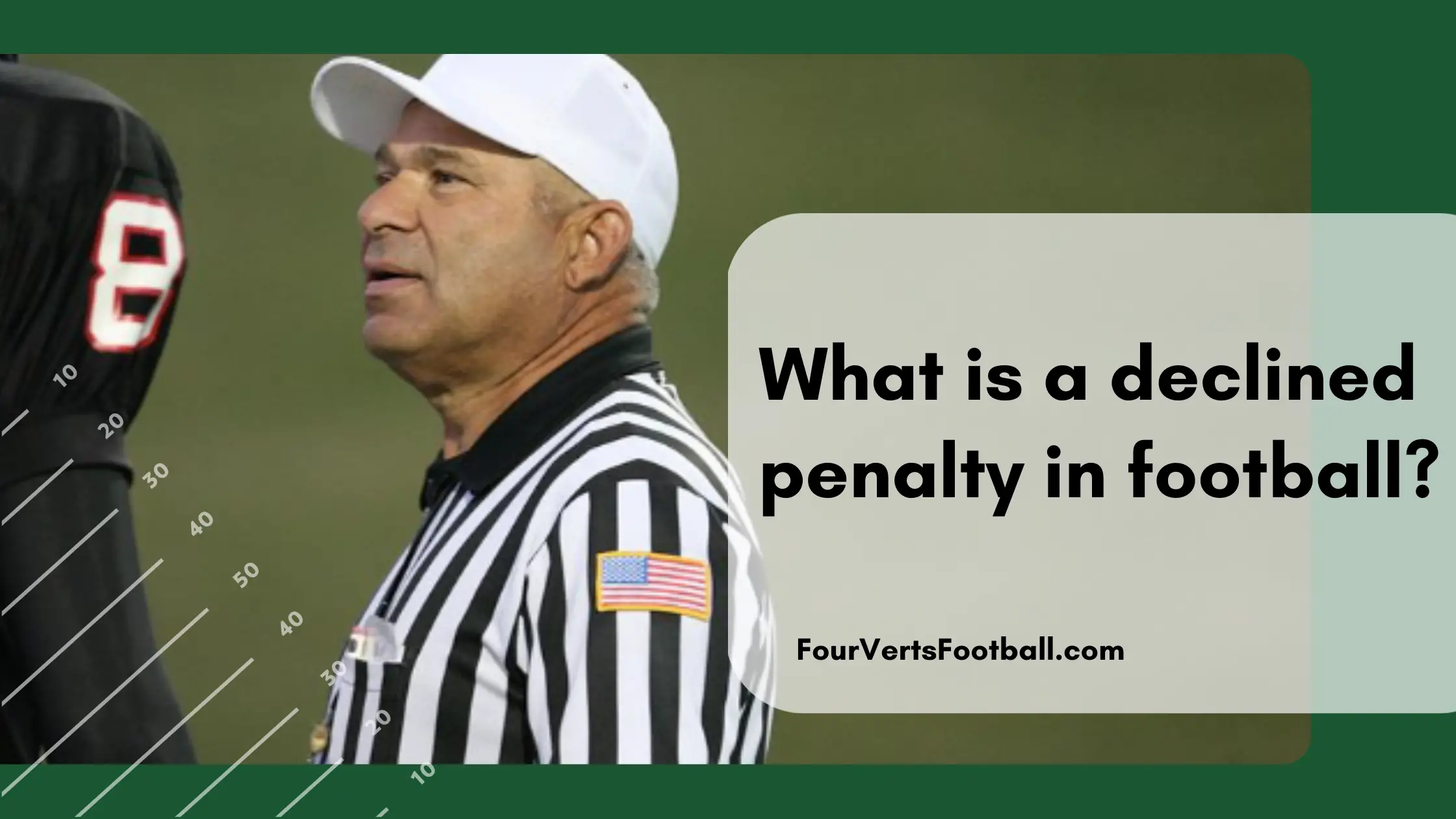A declined penalty in football occurs when a team declines to enforce the penalty that has been called against the opposing team.
In football teams will decline penalties when they believe the result of the play is better than their opponents taking the penalty yardage and replaying the down.
Whenever a penalty is called against a team their opponents are going to have the option to decline. For the most part, teams are going to accept the vast majority of penalties that are called against their opponents.
There are only a few relatively rare occasions in which declining a penalty is the best move for the team.
Examples of when to decline a penalty
Now that you know what a declined penalty is in football you may be wondering what exactly causes them to happen.
Below we will break down a few examples of when teams should decline a penalty in football.
They’ve already forced a punt
One reason that a team will decline a penalty in football is when they’ve already forced the opposing team into fourth down. On fourth down, teams will typically punt the ball.
This is because failure to convert on a fourth down means the ball will be turned over the other team. By accepting a penalty a team will move backwards in yards but will have a chance to replay the third down.
Often times it makes sense to decline a penalty ensuring the opposing team will punt instead of accepting the penalty in hopes of stopping the team again on third down.
This is arguably the most common reason why a team will decline a penalty in football.
The field goal is good
One more situation in which a team may decline a penalty is after they have successfully made a field goal. When accepting a penalty that occurs during the play a team will be forced to replay the down.
Now let’s say for example a team is attempting a field goal in the final few seconds of a half. The ball is snapped to start the play the kick is up and it is good but the opposing team has committed a foul.
Penalties against the kicker are often declined if the field goal is converted late in a half.
If the offensive team decides to accept this foul they will go forward in yardage but will have to re-attempt the kick.
Since there is limited time on the clock a field goal is the only positive outcome. This makes declining the penalty is the optimal decision.
This way the field goal will be converted and the team will be awarded three points.
They’re creating more space for their punter
One more situation in which a team may choose to decline a penalty is when their opponents intentionally take a delay of game when punting.
At the professional level, it has become relatively common to take a delay of game penalty when looking to give your punter more room.
When a punter is too close to their opponent’s endzone it can be difficult to accurately punt the ball.
By moving backwards punters will be able to kick at a more comfortable distance and often have better results.
For this reason, teams will often intentionally take a delay of game when punting the ball in order to give their punter some help.
The defense has an opportunity to decline this penalty in order to keep the punter close to the end zone.
For whatever reason, this tactic is not often used in the NFL as teams will usually accept the penalty that has been assessed for delay of game.
That being said declining the penalty in this situation effectively stops the opposing team’s strategy of moving the ball backwards.
Conclusion
I hope you enjoyed our guide to understanding declined penalties in football. We have a lot of other content on our site including some breakdowns of specific penaltis.
That’s all on declined penalties in football check out our guides to illegal use of the hands penalties or illegal leg whip penalties.

